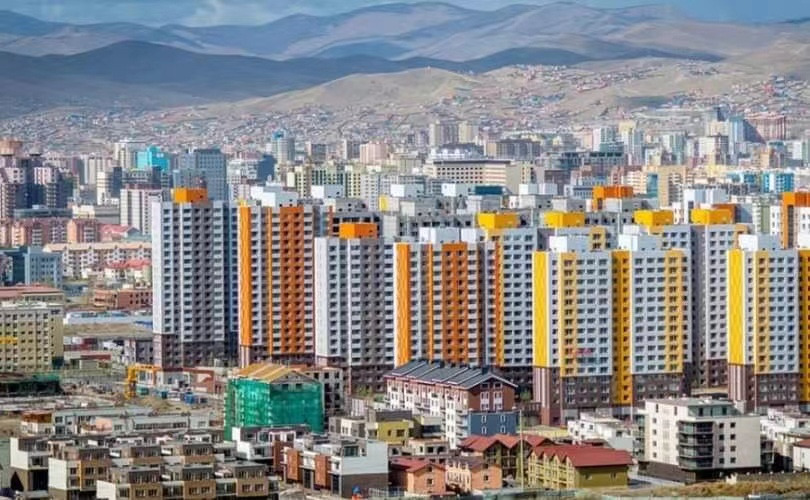
The “Future of Apartments in Mongolia 2024” international forum convened on October 28, drawing attention to the pressing need for sustainable, equitable housing solutions across Mongolia.
Opening the event, World Bank Country Manager for Mongolia Taehyun Lee emphasized the crucial role of housing in shaping community well-being, stating, “Apartment is not just a building. The environment we live in and the way we live together are based on housing. Our well-being and that of the country are deeply linked to the quality and accessibility of housing systems.”
Head of the Housing Department of Mongolia’s Ministry of Urban Development, Construction and Housing E.Batbold presented an overview of Mongolia’s current housing programs. He noted that Mongolia’s population of over 983,000 households is predominantly concentrated in Ulaanbaatar, where nearly half of all households reside. E.Batbold explained that 32 percent of the population lives in public apartments, while 38 percent live in ger areas, and 29 percent in houses. These statistics underscore the need for housing policies that address diverse living conditions, particularly for lower-income households.
He highlighted that approximately 56 percent of households in houses and 54 percent of those in apartments have average or below-average income. Mongolia’s housing policy, he explained, has been phased to accommodate various income levels, with government programs initiated in 2007 aimed at providing homes for 40,000 and 100,000 families, as well as a rental apartment program launched in 2015 to support middle- and lower-middle-income households. Since the inception of the mortgage program in 2010, Mongolia has offered reduced-interest loans, beginning with an eight percent interest rate and currently at six percent, to make housing more accessible. More than 118,000 families have benefitted from this initiative. From 2023, further adjustments enabled rural citizens to access mortgage loans with interest rates as low as three percent and a down payment reduced to 12 percent for the first three years.
Despite the success of the mortgage program in boosting homeownership, E.Batbold pointed out significant challenges. Approximately 60 percent of beneficiaries have since acquired second or third apartments, resulting in increasing property prices. This trend, he said, is problematic as incomes are not rising in parallel, leaving many households struggling to afford housing amid inflating costs.
He also noted that the construction sector saw a dramatic increase in apartments built, from an average of 4,000 to 6,000 units annually between 2003 and 2009, to more than 23,000 apartments at the peak of the mortgage program in 2014 and 2015. However, housing development remains uneven across the country, with 117 of Mongolia’s 330 soums lacking a general development plan, which creates barriers to planning future residential areas and private apartments.
The ministry also reported, “The apartment program will be tailored according to household income, with a focus on prioritizing average-income families and first-time homebuyers. Current mortgage loan beneficiaries are predominantly families with above-average income. To enhance inclusivity, income restrictions will be introduced to ensure those with moderate incomes and individuals purchasing their first homes receive prioritized access.”
Moreover, E.Batbold underlined that the revised policy will incorporate a progressive loan interest rate that increases with property size, reflecting the need for a balanced approach to mortgage support. Additionally, he underscored the importance of addressing tax policies and introducing necessary changes to the legal environment. He emphasized that with these reforms, the funding pool for mortgage loans could expand by as much as 35 percent, creating a more robust and sustainable foundation for Mongolia's housing sector.
Policy gaps were also highlighted, particularly the discontinuation of the rental housing program in 2016, which left low-income residents with fewer housing options. Additionally, Mongolia currently lacks a system to monitor housing demand and supply effectively, leading to mismatches in the housing market.
To address these issues, E.Batbold outlined several proposed steps, including leveraging national wealth and natural resources for citizen housing, implementing a mortgage program tailored to various income levels, and establishing a National Housing Corporation to assume oversight of the mortgage loan program. The forum underscored the urgent need for long-term, inclusive housing solutions to support Mongolia’s growing and diverse population, with discussions pointing to potential reforms that could transform the nation’s housing landscape.